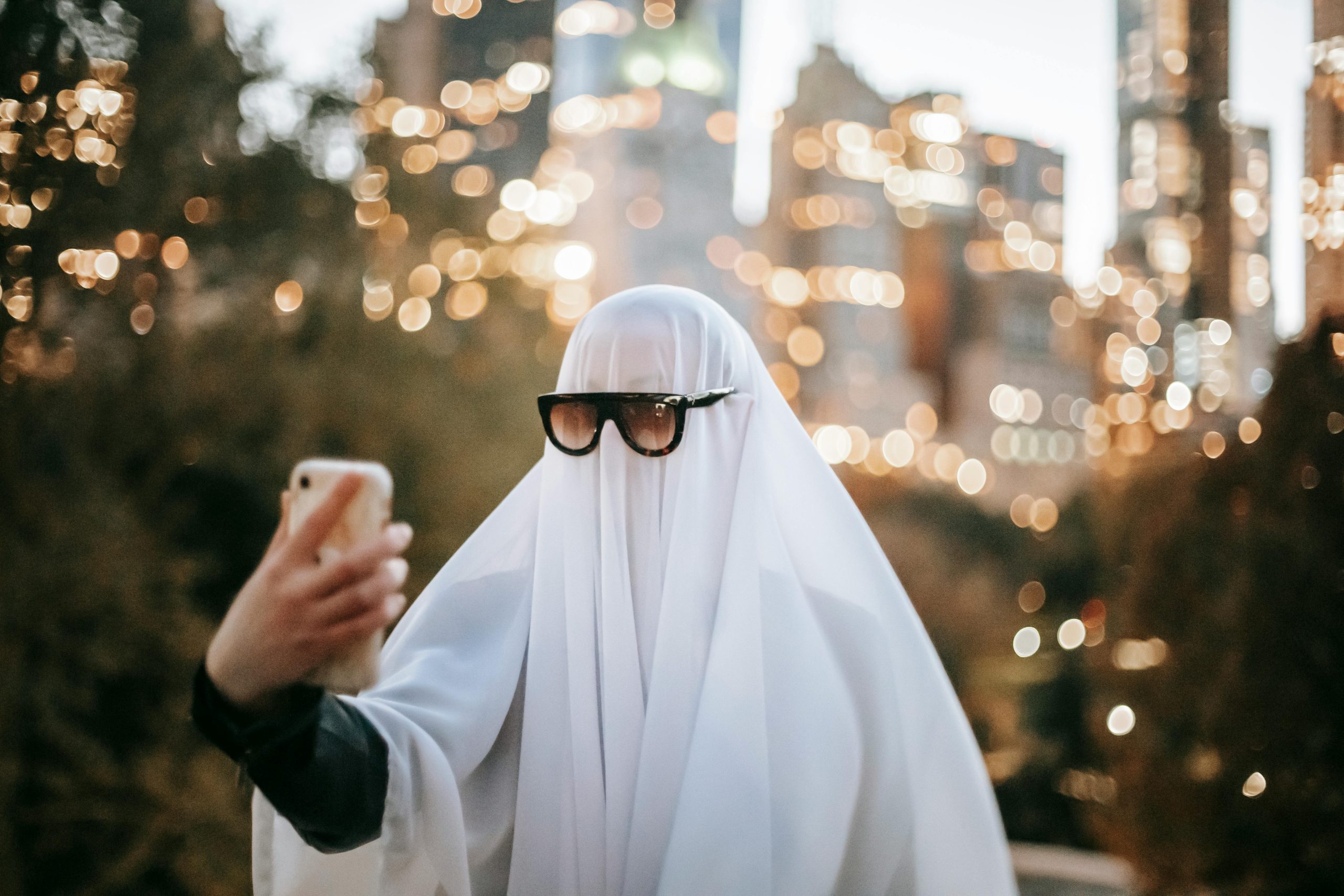Ghosting – Meaning & Why it Happens
Ah, the age-old question — why did they ghost me? It’s a mystery that plagues every ghostee. If you’re new to the dating scene, you may not be familiar with this term. So, first, let’s look at the meaning of ghosting.

Ah, the age-old question — why did they ghost me? It’s a mystery that plagues every ghostee. If you’re new to the dating scene, you may not be familiar with this term. So, first, let’s look at the meaning of ghosting.
The meaning of ghosting
Ghosting is when someone you’re seeing suddenly stops responding to your texts or calls without any explanation. It’s like they’ve vanished into thin air. But don’t panic. While ghosting can be super confusing and hurtful, there are ways to handle it gracefully and move on with your head held high.
7 reasons behind ghosting someone
The most important point to remember is that, more often than not, the ghoster doesn’t have any malicious intentions or ill will towards the ghostee. So, what is actually going on? Here are the seven most common reasons why your date might disappear without a trace.

1. They’re going through a busy period.
It’s easy to forget that the person on the other end of the conversation is a real-life human with their own life going on. We all go through periods in our lives where we’re just too busy for a relationship. This can be especially true if the ghoster is dealing with work stress, family issues, or a major life event.
2. They’re not that into you.
If someone has ghosted you, it might be because they’re not actually that interested in you. If someone is interested in you, they’ll make time for you. It could be that they don’t feel a strong sense of connection, or they’re looking for something else in a relationship. This doesn’t make them a bad person, it just means that things didn’t work out between the two of you.
3. They met someone else.
If the person you’re seeing suddenly stops responding to your texts and calls out of the blue, it might be because they’ve met someone else and are now focusing their attention on that person. Unless you are in an exclusive relationship, it’s always a possibility that the person you’re seeing is also seeing other people.
4. They’re avoiding a difficult conversation.
If there’s something going on that the person doesn’t want to talk about, they might ghost you as a way of avoiding the conversation altogether. This could be anything from them losing interest to being unhappy with something specific that happened between the two of you.
5. They’re going through a tough time.
Sometimes, people need space when they’re going through a tough time in their life. If the person you’re seeing is dealing with something difficult, they might need some time to themselves and might not have the emotional capacity to maintain a relationship.
6. They’re not ready for a relationship.
If the person you’re seeing isn’t ready for a serious relationship, they might ghost you rather than tell you outright that they don’t want things to get too serious. They might worry about hurting your feelings and not be sure how to say it without being too blunt.
7. They’re afraid of commitment.
Some people might even ghost you even if they like you. When this happens, it’s usually because they are just afraid of commitment, plain and simple. If they start to feel like things are getting too serious, they might bail out by ghosting you.
Remember, there could be a whole range of reasons why someone ghosts you, and it’s important to remember that it might not have anything to do with you.
How to deal with being ghosted
As hard as it might be, the best way to handle ghosting is to do nothing. Whatever you do, don’t chase them. If the ghoster doesn’t prioritize you enough to reply to your messages, it’s not worth investing time and energy into them. It’s best to move on because if you chase them, your dynamic will become even more imbalanced.

If someone returns after ghosting you for a period of time, whether you accept them back into your life depends on a number of factors.
The main points to consider are:
(1) The length of the ghosting period.
(2) The stage of your relationship at the time of ghosting.
(3) How much of an effort they make when they return.
For example, if someone ghosts you for two weeks after you’ve been on five dates, and then they message you saying, ‘Hey,’ that probably doesn’t justify a reply, no matter how much you like them.
However, if someone ghosts you for a few days after you’ve been on your first date and sincerely apologizes because they’ve been dealing with family issues, it wouldn’t be unreasonable to reply.
But it’s a decision you need to make yourself based on your specific needs and values.
Top tips for when you’ve been ghosted
So, how should you cope with being ghosted? Here are some tips that might help you.

1. Don’t try to figure out the reason.
It’s easy to get stuck in a loop of racking your brain trying to figure out why they just stopped talking to you. It’s easy to replay conversations again and again in your head or to read through your old messages to see if you did something wrong. But the truth is, a lot of times, ghosting doesn’t have anything to do with you. Some people just have other priorities or aren’t ready for a relationship, so they ghost without giving any kind of explanation. Don’t waste time trying to get answers from someone who isn’t around anymore, and focus on taking care of yourself instead.
2. Feel your feelings.
It’s normal to feel hurt or rejected after being ghosted. And it’s important that you allow yourself time to process these feelings and grieve the loss of something that could have been special. This doesn’t mean wallowing in sadness. Instead, you should acknowledge how you feel. It’s important to process emotions rather than ignoring them or letting them build up. In the long run, this will help you move on in the best way possible.
3. Be kind to yourself.
It’s easy to get overly critical of yourself when you’ve been ghosted but it’s important to remember that being ghosted doesn’t mean you’re unworthy of love. Don’t over-analyze the situation or beat yourself up for things that you couldn’t control. Instead, be kind to yourself and focus on the positive things that are still in your life. Do something that brings you joy and helps ease the pain. Go for a walk, take a yoga class, or even just snuggle up with a good book.
4. Talk things through with family or friends.
Having a strong support system is invaluable during times like these, so don’t be afraid to reach out for help when things get tough. Talking through the situation with trusted family members or friends can help give perspective on the situation and remind you that people still care about and value you, even if one person knocks your confidence. Speaking out loud about it can also help you process your emotions.
5. Reframe the situation in a positive light.
Being ghosted can be a difficult experience, but it’s important to remember that it doesn’t define you. Rather than letting it drag your self-esteem down, try to reframe it as an opportunity to learn and grow. For every challenging experience that you have in life, there are valuable lessons to be learned. Taking the time to reflect on the experience and identify what you can learn from it can help give you a sense of closure and help you move on from the situation in a healthier, more positive way.
Ghosting is never an easy thing to go through, but you’ll be much better off in the long run if you take the time to process it and move on. Following these tips can help you to move on with a newfound sense of resilience and strength. And you never know; you may just have avoided a toxic relationship.
Ghosting FAQs
Let’s now address some of the most common questions about ghosting.
Why is ghosting so difficult to get over, even after a very short dating period?
Ghosting can be hard to get over, even after a very short dating period, because it’s a form of rejection. It hurts even more if you think you had the potential for an incredible future and then you realize that they didn’t appreciate you in the same way.
When someone ghosts you, it can be even more painful than officially ending things because it can seem like the ghoster was so uninvested that they didn’t even think what you had together justified a closure conversation. When you deeply care about someone, or you think you had the potential for something great, this can be heartbreaking.
Is it ever a good idea to reach out to a ghoster for closure?
If you’ve sent multiple messages without receiving a reply, it’s best not to reach out to ghosters for closure. You might think that officially ending things can feel like a necessary step to moving on, but if they don’t respect you enough to even reply to you, they don’t deserve any more of your energy.
That’s not to say that closure isn’t necessary, though. Closure can certainly help you move on, but the key here is to give it to yourself. You don’t need anyone but yourself for closure. Even consciously thinking, ‘I’m giving myself closure now’ can be beneficial.
A healthy way to help process your feelings is to write a letter to the ghoster but don’t actually send it. If you feel like blocking their number will help, then do that. If someone chooses to ghost you, whatever the reason, you shouldn’t feel the need to be there for them when they choose to return on their terms.
How can I tell the difference between ghosting and a slow fade?
Ghosting and a slow fade both involve pulling away from a person, but there’s a difference. Ghosting someone is to just cease communication without explanation or warning—it’s the equivalent of suddenly disappearing into thin air. A slow fade, on the other hand, involves slowly withdrawing from a person—think of ice slowly melting instead of shattering.
So which is better: ghosting or a slow fade? Ultimately, they are both forms of rejection, and they both have their downsides.
Ghosting is more sudden and can leave someone feeling a deep sense of hurt and loss. However, at least with ghosting, it’s over quickly, like ripping off a bandaid. A slow fade can often be even more painful because it involves a prolonged period of uncertainty and confusion, making it harder to move on from, and it wastes your time.
One method is a clear hustle and bustle exit, while the other is more like watching paint dry. At the end of the day, neither ghosting nor a slow fade is a considerate way to end things with people you’ve connected with in a meaningful way. If you’ve been on multiple dates and invested time in each other, it’s best to have an upfront conversation if you’re not feeling it. Remember, people’s feelings are on the line here, and a little kindness goes a long way.
Final thoughts on the aftermath of ghosting & why it happens
Being ghosted can feel like a personal attack on your self-worth. But try looking at the situation in another light. If you’re not together, it means that this person wasn’t right for you after all. It might take some time before the positive vibes start flowing again (and that’s ok!).
When someone you like has ghosted you, it can be hard to stay positive. But when you meet your match, you’ll be grateful that all of this happened.

Being ghosted can be painful and confusing, but it doesn’t have to define who we are or our future relationships. Take some time to process the situation however works best for you, surround yourself with supportive friends and family members, and don’t forget that nothing good will come of investing energy in trying to solve the mystery of why someone ghosted you.
So never stay stuck wondering, “Why did they ghost me?” because there just might be something better waiting just around the corner.
If you found this post helpful, you might also want to read Dating Someone with ADHD & Texting.




